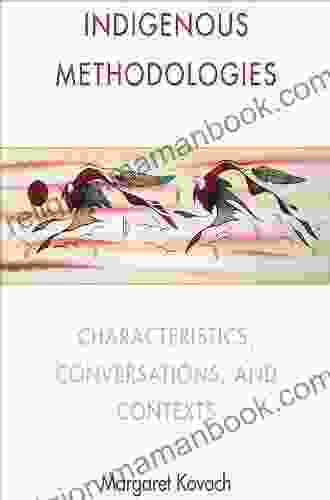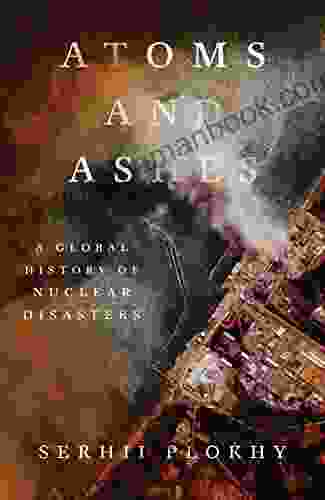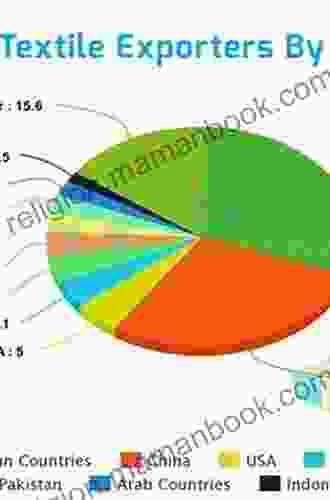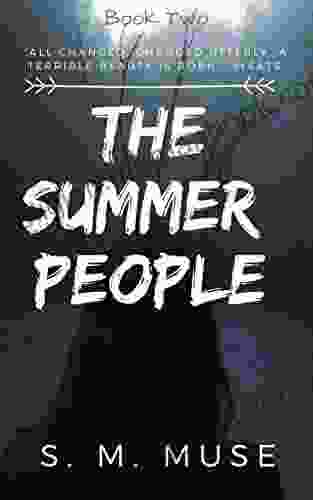Indigenous Methodologies: Characteristics, Conversations, and Contexts

Indigenous methodologies are unique and important approaches to research that are rooted in the cultures, values, and knowledge systems of Indigenous peoples. These methodologies prioritize the perspectives and experiences of Indigenous communities, and they emphasize the importance of relationships, reciprocity, and respect.
In recent years, there has been a growing interest in indigenous methodologies in academic research. This is due in part to the increasing recognition of the importance of Indigenous knowledge and perspectives, as well as the growing awareness of the limitations of Western research methods in addressing Indigenous issues.
Indigenous methodologies offer a valuable alternative to Western research methods, and they can provide important insights into the experiences and perspectives of Indigenous peoples. However, it is important to note that indigenous methodologies are not a monolithic category. There is a great deal of diversity within Indigenous communities, and there are many different ways of conducting indigenous research.
4.8 out of 5
| Language | : | English |
| File size | : | 420 KB |
| Text-to-Speech | : | Enabled |
| Screen Reader | : | Supported |
| Enhanced typesetting | : | Enabled |
| Word Wise | : | Enabled |
| Print length | : | 216 pages |
In this article, we will explore the characteristics, conversations, and contexts of indigenous methodologies. We will provide an overview of the different types of indigenous methodologies, and we will discuss the challenges and opportunities that come with using these methodologies.
Indigenous methodologies are characterized by a number of key features, including:
- Relationality: Indigenous methodologies emphasize the importance of relationships between researchers and participants. Researchers are expected to develop respectful and reciprocal relationships with the communities they study, and they must be mindful of the power dynamics that exist between researchers and participants.
- Participatory: Indigenous methodologies involve participants in all aspects of the research process, from the design of the study to the dissemination of the findings. This participatory approach ensures that the research is relevant and meaningful to the community, and it helps to build trust between researchers and participants.
- Contextual: Indigenous methodologies take into account the specific historical, cultural, and political contexts of the research. Researchers must be aware of the unique challenges and opportunities that exist in each community, and they must tailor their research methods accordingly.
- Holistic: Indigenous methodologies view the world in a holistic way. Researchers seek to understand the interconnectedness of all things, and they consider the physical, mental, emotional, and spiritual aspects of human experience.
- Reflexive: Indigenous methodologies require researchers to be reflexive about their own role in the research process. Researchers must be aware of their own biases and assumptions, and they must be willing to challenge their own perspectives.
There are a number of important conversations taking place about indigenous methodologies. These conversations include:
- The role of Indigenous knowledge in research: Indigenous knowledge is a valuable source of information that can be used to inform research. However, there is a debate about how to incorporate Indigenous knowledge into research in a respectful and ethical way.
- The challenges of using Indigenous methodologies in Western academic institutions: Indigenous methodologies can be challenging to use in Western academic institutions, which are often based on Western epistemologies and values. Researchers who use indigenous methodologies may face resistance from colleagues and administrators, and they may have difficulty getting their research published in mainstream academic journals.
- The importance of decolonizing research: Decolonizing research means challenging the assumptions and practices of Western research that have historically marginalized Indigenous peoples. Indigenous methodologies can be used to decolonize research by giving Indigenous peoples control over the research process and by privileging Indigenous knowledge and perspectives.
Indigenous methodologies are used in a variety of contexts, including:
- Academic research: Indigenous methodologies are increasingly being used in academic research to address a wide range of topics, including Indigenous health, education, and environmental issues.
- Community-based research: Indigenous methodologies are also used in community-based research projects that are designed to benefit Indigenous communities. These projects may focus on issues such as economic development, cultural revitalization, and environmental sustainability.
- Policy research: Indigenous methodologies can be used to inform policy development that affects Indigenous peoples. This research can help to ensure that policies are based on Indigenous knowledge and perspectives, and that they are responsive to the needs of Indigenous communities.
There are a number of challenges and opportunities associated with using indigenous methodologies.
Challenges
- Resistance from Western academic institutions: As mentioned above, Indigenous methodologies can be challenging to use in Western academic institutions. Researchers may face resistance from colleagues and administrators, and they may have difficulty getting their research published in mainstream academic journals.
- Lack of funding: Indigenous research projects often lack funding, which can make it difficult to conduct research in a meaningful way.
- Ethical concerns: Indigenous researchers must be mindful of the ethical implications of their research. They must ensure that their research is respectful of Indigenous communities and that it does not harm participants.
Opportunities
- Valuing Indigenous knowledge: Indigenous methodologies provide a way to value Indigenous knowledge and perspectives. This can help to challenge the dominance of Western knowledge systems and to promote a more inclusive and equitable society.
- Empowering Indigenous communities: Indigenous methodologies can empower Indigenous communities by giving them control over the research process. This can help to build capacity within Indigenous communities and to promote self-determination.
- Improving research outcomes: Indigenous methodologies can lead to better research outcomes by providing a more nuanced and comprehensive understanding of Indigenous issues. This research can inform policy development, program evaluation, and community-based initiatives.
Indigenous methodologies are a valuable and important approach to research. They prioritize the perspectives and experiences of Indigenous peoples, and they emphasize the importance of relationships, reciprocity, and respect. Indigenous methodologies can be used to address a wide range of topics, and they can lead to better research outcomes. However, there are a number of challenges associated with using indigenous methodologies, including resistance from Western academic institutions, lack of funding, and ethical concerns. Despite these challenges, indigenous methodologies offer a unique and important way to conduct research that is respectful of Indigenous communities and that can benefit Indigenous peoples.
- Indigenous Methodologies
- Decolonizing Research: Indigenous Methodologies
- Indigenous Research: A Guide for Scholars and Practitioners
4.8 out of 5
| Language | : | English |
| File size | : | 420 KB |
| Text-to-Speech | : | Enabled |
| Screen Reader | : | Supported |
| Enhanced typesetting | : | Enabled |
| Word Wise | : | Enabled |
| Print length | : | 216 pages |
Do you want to contribute by writing guest posts on this blog?
Please contact us and send us a resume of previous articles that you have written.
 Top Book
Top Book Novel
Novel Fiction
Fiction Nonfiction
Nonfiction Literature
Literature Paperback
Paperback Hardcover
Hardcover E-book
E-book Audiobook
Audiobook Bestseller
Bestseller Classic
Classic Mystery
Mystery Thriller
Thriller Romance
Romance Fantasy
Fantasy Science Fiction
Science Fiction Biography
Biography Memoir
Memoir Autobiography
Autobiography Poetry
Poetry Drama
Drama Historical Fiction
Historical Fiction Self-help
Self-help Young Adult
Young Adult Childrens Books
Childrens Books Graphic Novel
Graphic Novel Anthology
Anthology Series
Series Encyclopedia
Encyclopedia Reference
Reference Guidebook
Guidebook Textbook
Textbook Workbook
Workbook Journal
Journal Diary
Diary Manuscript
Manuscript Folio
Folio Pulp Fiction
Pulp Fiction Short Stories
Short Stories Fairy Tales
Fairy Tales Fables
Fables Mythology
Mythology Philosophy
Philosophy Religion
Religion Spirituality
Spirituality Essays
Essays Critique
Critique Commentary
Commentary Glossary
Glossary Bibliography
Bibliography Index
Index Table of Contents
Table of Contents Preface
Preface Introduction
Introduction Foreword
Foreword Afterword
Afterword Appendices
Appendices Annotations
Annotations Footnotes
Footnotes Epilogue
Epilogue Prologue
Prologue B D Mccullough
B D Mccullough Nick Adams
Nick Adams Adrienne Brodeur
Adrienne Brodeur Diana Preston
Diana Preston Renata Pavrey
Renata Pavrey Sarah Ruhl
Sarah Ruhl Neil Peart
Neil Peart Patricia Haverton
Patricia Haverton Christopher Paul
Christopher Paul Daniela Gaidano
Daniela Gaidano Patricia Regier
Patricia Regier Jonathan Wright
Jonathan Wright Tamsyn Muir
Tamsyn Muir Garry Goodman
Garry Goodman Avanti Centrae
Avanti Centrae Dr Sushma Gupta
Dr Sushma Gupta Michael Reisig
Michael Reisig Debra Griffin
Debra Griffin Michael Sikorski
Michael Sikorski Misha Shayter
Misha Shayter
Light bulbAdvertise smarter! Our strategic ad space ensures maximum exposure. Reserve your spot today!

 Floyd PowellAn Iniquus Action Adventure Romance: A Journey Through Intrigue, Danger, and...
Floyd PowellAn Iniquus Action Adventure Romance: A Journey Through Intrigue, Danger, and... Ricky BellFollow ·18k
Ricky BellFollow ·18k Isaiah PriceFollow ·3.1k
Isaiah PriceFollow ·3.1k Gabriel BlairFollow ·4k
Gabriel BlairFollow ·4k Joseph ConradFollow ·3.9k
Joseph ConradFollow ·3.9k Carlos DrummondFollow ·3k
Carlos DrummondFollow ·3k Gil TurnerFollow ·5k
Gil TurnerFollow ·5k Lord ByronFollow ·17.8k
Lord ByronFollow ·17.8k Dwight BellFollow ·13.2k
Dwight BellFollow ·13.2k

 David Peterson
David PetersonUnveiling Eleven of the Wheel of Time: A Journey Through...
In the vast and intricate...

 Curtis Stewart
Curtis StewartEbony Jay Rice: A Rising Star in the Entertainment...
Ebony Jay Rice is a force to be reckoned...

 Matt Reed
Matt ReedNavigating Mental Health with Science: Overcoming...
Mental health is an integral part of...

 Guillermo Blair
Guillermo BlairFormer Magistrate's Poetic Reflections on Love and...
In the hallowed halls...

 Corey Green
Corey GreenOf the Dead: William Burroughs' Post-Beat Masterpiece
William S. Burroughs' Of the...
4.8 out of 5
| Language | : | English |
| File size | : | 420 KB |
| Text-to-Speech | : | Enabled |
| Screen Reader | : | Supported |
| Enhanced typesetting | : | Enabled |
| Word Wise | : | Enabled |
| Print length | : | 216 pages |












